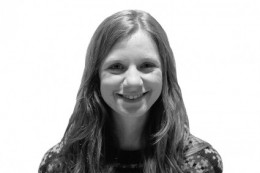
White privilege. Male privilege. Hetero-cis privilege. The rise of this term “privilege” signifies a milestone: Recognition that in our current social structure, some people are born with inherent advantages. Right now, however, the term is in danger of becoming a dirty word. Everyone likes being privileged, but no one likes to hear that they are privileged. This term “privilege” does not attack us as individuals. A lot of people struggle with this term because they are not sure what they are supposed to do about their privilege. They rack up guilt with no idea how to get rid of it. Guilt is the small price we pay for privilege, but it should serve a purpose. Rather than trying to escape your guilt, turn your privilege into motivation to take advantage of the opportunities open to you to their fullest potentials.
It is easy to try to mitigate guilt by searching for ways in which you are a victim of prejudice, but this is not a constructive attitude. A valid gripe of lower-class white people is that they were not given the same privileges as rich people. This is true, but it doesn’t hold up as a counterargument to white privilege. I’ve even heard people argue that naturally beautiful people have it better than ugly people, and therefore, ugly people have less privilege.
While all this may very well be true, focusing on the ways in which you are society’s victim is not a constructive way to react to the privileges you do have. Everybody is born with certain disadvantages. Some are simply larger and more inescapable than others. Turning the conversation into one about victims and perpetrators makes it an uncomfortable exchange that no one wants to participate in on either side.
So how do you react to being born with privilege? How do you react to being born without it? The answer is actually the same: Do your best with what you were given. There is an added pressure for those of us who were born with certain advantages. There are fewer reasons not to be successful. There is no one to blame for our failures but ourselves. Let this drive you to be a hard-working, active and conscious member of society. Think of your privilege as a counterargument to the voice in your head that says you can’t do something. In other words, don’t resent it, but appreciate it and move on.
Some of us are ugly. Some of us are poor. Some of us have physical or mental disorders. Some of us have bad parents, or one parent or no parents. You shouldn’t forget about your struggles; they are a big part of who you are. Just don’t be afraid to recognize the areas in which you are advantaged, and let those advantages encourage you to reach your highest potential, at which point you can help shape society by being informed and involved.


